17 - 21 October 2022
Space Sector Finding Leadership Through Private Innovation
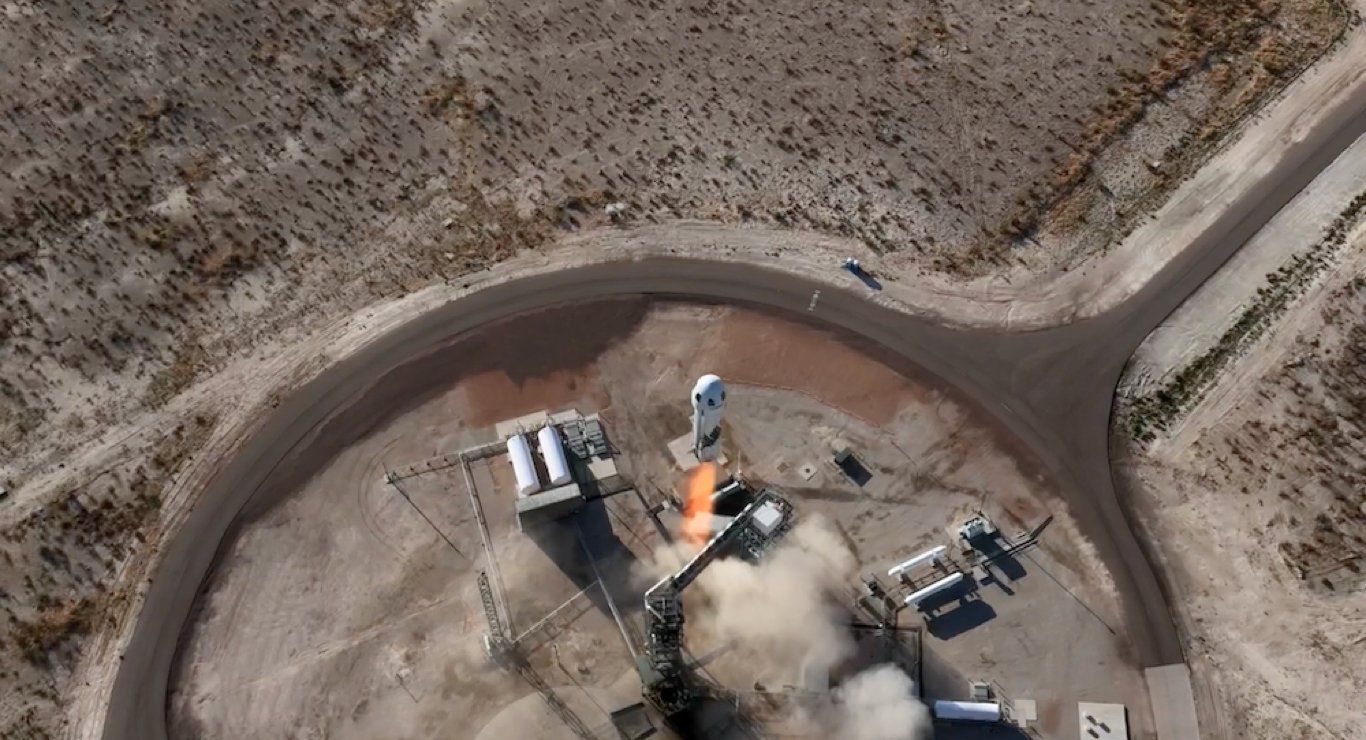
Jeff Bezos committed to his long-term plans in space Earth (Image: Blue Origin)
As we move closer to the end of 2022 we can easily say that it has been, already, an eventful year in the space sector. Whilst leading space nations still seem to be the pioneers of space, the standout of the year most certainly has to be the private sector, as a whole. Jeff Bezos, whilst recently receiving an award at the Vatican, said that "we go to space not to abandon our home but to protect it”. Is it this drive that is spurring the private sector to build the framework for the future?
This isn’t to say that the public sector is lagging behind. Far from it. We are still to see Artemis-1 liftoff (hopefully) in November, and China is set to launch the final module of its new space station at the end of the month. NASA concluded very successful results from their DART asteroid deflection test, and their OSIRIS-REx spacecraft is reportedly on its way back to Earth to delivery an asteroid sample, scheduled for September 2023. They have also conducted successful tests of their robotic balloon, to be used to explore the atmosphere of Venus.
The UK also appear to be on course with their plans to increase presence in space (aiming to dominate 10% of the market), and have this week announced a £15 million fund to boost their satellite communications industry, as well as UK launch startup Orbex sourcing new funding helping them focus on their debut UK launch next year.
An article from the World Economic Form this week, referring to The Space Foundation 2022 report, highlighted this pace of national investment, with an overall increase of 19%, with India increasing their space spending by 36%. As well as helping to kickstart new industries, this type of public support will also be vital in helping the industry with their long-term plans whilst facing tough economic times.
Nevertheless, the private sector have let heir voices be heard over the past weeks, taking the lead in innovation, efficiency and building the foundations for a revolution in the space sector.
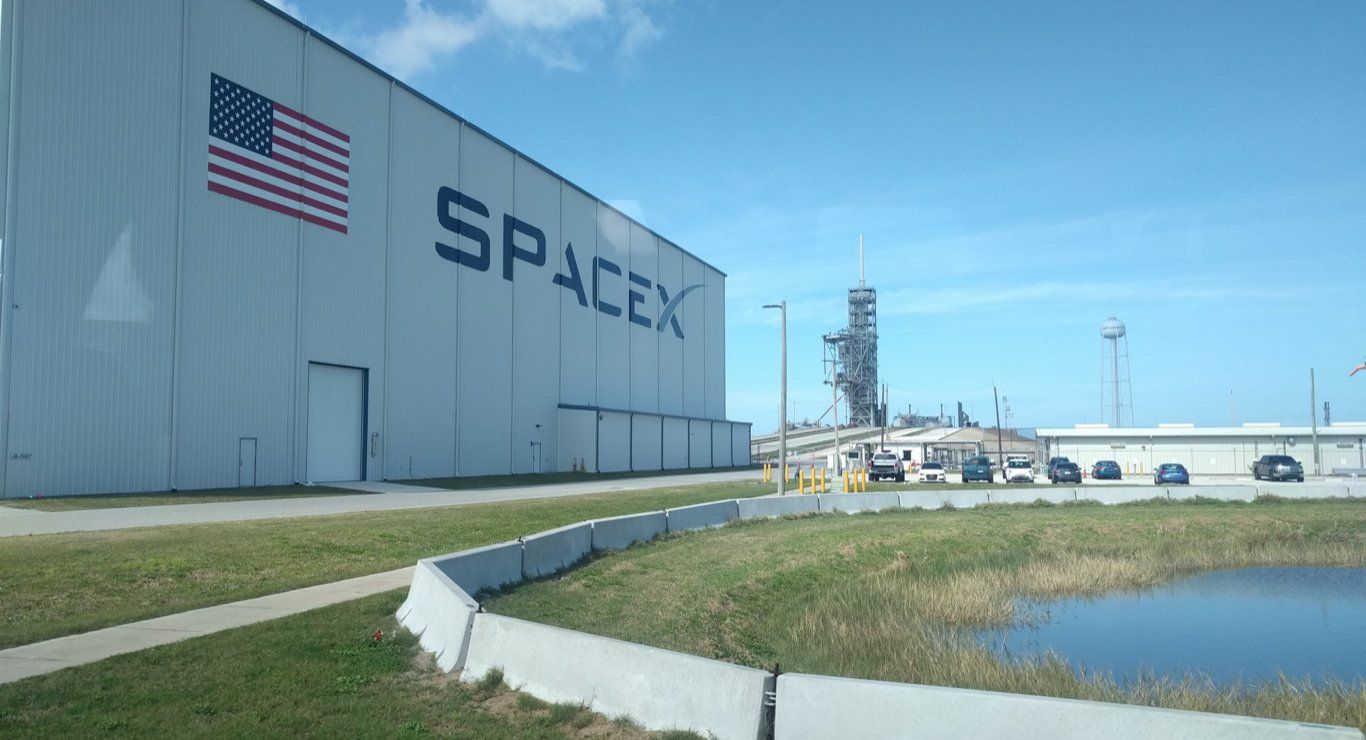
SpaceX improving efficiency for for small sat launches (Image: SpaceX)
Efficient Innovation Building ‘Road To Space’
Efficiency appears to be the key for innovation. Whether that’s in reusable design bringing down costs and improving responsive launch capabilities, improving sustainable engine design or reducing development timeframes. Efficiency will also come about as a result of an increasingly competitive marketplace, which in turn, will reduce costs and increase accessibility to space.
The forerunner for efficiency still appears to be SpaceX, and their workhorse, the Falcon-9. It seems that the rocket will be the launch option chosen for the European astrophysics spacecraft, Euclid. The mission, being carried out to observe dark matter and energy, was previously set to launch with Soyuz, and will likely be picked up by SpaceX. Furthermore, they have recently improved the payload efficiency of their ride-share capabilities for small satellites, further reducing costs for customers. The so called “Rideshare Plate” is designed to offer customers a “modular and flexible platform capable of supporting all kinds of payload adapters and dispensers”, according to teslarati.com.
Virgin Orbit will also be looking to make their name known, with Richard Branson stating that their first UK launch (named the “start me up” launch) will be within the next 6 weeks. Furthermore, they have also signed a letter of intent with Luxembourg in pursuit of proving responsive launch capabilities, extending this service also to NATO allies. Virgin will be aiming to push their flexible and rapid launch service, having the unique advantage of launching mid-air from their 747.
Efficiency in design and development will be vital, in building road to space. SpaceX and Blue Origin are certainly the most famous when it comes to the use of reusable rocket tech, but Relativity Space are also focussing on developing their fully reusable rocket. After making an agreement with NASA they will now open one of the largest rocket test facilities in the US, and will continue work towards developing the world’s first 3D printed rockets, Terran 1 and Terran R, the latter their fully reusable rocket, with a payload up to 20,000kg. Similarly, Launcher Space have recently successfully tested their 3D printed E-2 engines, supposed to be the most efficient kerosine powered engines ever made in the US. Efficiency appears to be the key to accessibility in space.

Urgency to build regulations for stations replacing ISS (Image: NASA)
Leadership Coming From The Private Sector
Leadership in space comes from those who innovate and provide the solutions needed to further our future. Historically it has been leading space nations, yet it appears to be that it is the private sector who are providing more of the innovation that is needed in order to build this future, and moreover, provide the competition that is required to increase the pace of technological development and design. But how far can the private sector be involved with governmental and defence aspiration without becoming involved in geopolitical conflict?
Elon Musk has confirmed that he will continue to fund the use of his Starlink satellite constellation in Ukraine, after previously considering asking the US for funding. As previously discussed, the use of Starlink sees a private sector company being directly being involved in a conflict, and taking decisive leadership within a geopolitical situation. Is this a sign for things to come with leading space companies?
Similarly, Blue Origin and Jeff Bezos were recently given an unclassified briefing from U.S. Space Systems Command, covering topics such as their concern regarding threats posed from China and Russia. Again, perhaps an indication of how the leaders of innovation may become increasingly influential in building the framework for a new space economy.
Whilst it may be a concern that the commercial sector come become embroiled in conflict, it may also be a chance for a new body to influence and encourage the construction of a neutral and peaceful space framework, and after all, there is still a lot of work that needs to be done, in building laws and universally recognised regulations which govern activities in outer space. During panel discussions at the Beyond Earth Symposium on October 13th, companies looking to contract new commercial space stations voiced concerns about the “…“alphabet soup” of agencies, none of which today have the authority to provide oversight of their operations as required under the Outer Space Treaty”, according
spacenews.com. It’s areas such as these where the private sector need clarity, in order for us all the succeed in space.
Furthermore, as we continue to witness the deterioration of geopolitical relations, and the threat of conflict in space grows, it appears that it may be the voice of the increasingly influential private sector who could make their voices heard, pick up where politics has failed, and lay out the foundations where a neutral and peaceful future in space can evolve.
External Links
This Week
*News articles posted here are not property of ANASDA GmbH and belong to their respected owners. Postings here are external links only.
Our future in space
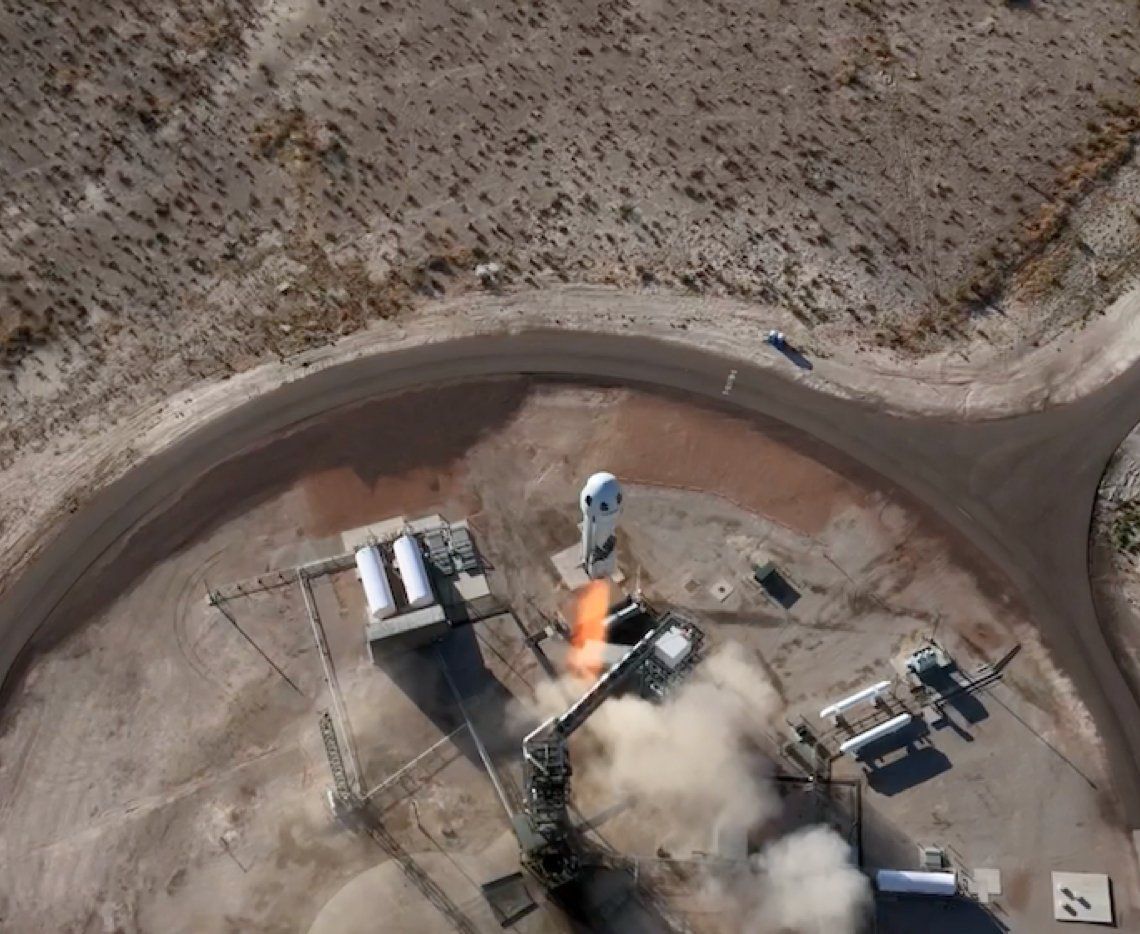
Jeff Bezos committed to his long-term plans in space Earth (Image: Blue Origin)
17 - 21 October 2022
Space Sector Finding Leadership Through Private Innovation
As we move closer to the end of 2022 we can easily say that it has been, already, an eventful year in the space sector. Whilst leading space nations still seem to be the pioneers of space, the standout of the year most certainly has to be the private sector, as a whole. Jeff Bezos, whilst recently receiving an award at the Vatican, said that "we go to space not to abandon our home but to protect it”. Is it this drive that is spurring the private sector to build the framework for the future?
This isn’t to say that the public sector is lagging behind. Far from it. We are still to see Artemis-1 liftoff (hopefully) in November, and China is set to launch the final module of its new space station at the end of the month. NASA concluded very successful results from their DART asteroid deflection test, and their OSIRIS-REx spacecraft is reportedly on its way back to Earth to delivery an asteroid sample, scheduled for September 2023. They have also conducted successful tests of their robotic balloon, to be used to explore the atmosphere of Venus.
The UK also appear to be on course with their plans to increase presence in space (aiming to dominate 10% of the market), and have this week announced a £15 million fund to boost their satellite communications industry, as well as UK launch startup Orbex sourcing new funding helping them focus on their debut UK launch next year.
An article from the World Economic Form this week, referring to The Space Foundation 2022 report, highlighted this pace of national investment, with an overall increase of 19%, with India increasing their space spending by 36%. As well as helping to kickstart new industries, this type of public support will also be vital in helping the industry with their long-term plans whilst facing tough economic times.
Nevertheless, the private sector have let heir voices be heard over the past weeks, taking the lead in innovation, efficiency and building the foundations for a revolution in the space sector.

SpaceX improving small sat launches (Image: SpaceX)
Efficient Innovation Building ‘Road To Space’
Efficiency appears to be the key for innovation. Whether that’s in reusable design bringing down costs and improving responsive launch capabilities, improving sustainable engine design or reducing development timeframes. Efficiency will also come about as a result of an increasingly competitive marketplace, which in turn, will reduce costs and increase accessibility to space.
The forerunner for efficiency still appears to be SpaceX, and their workhorse, the Falcon-9. It seems that the rocket will be the launch option chosen for the European astrophysics spacecraft, Euclid. The mission, being carried out to observe dark matter and energy, was previously set to launch with Soyuz, and will likely be picked up by SpaceX. Furthermore, they have recently improved the payload efficiency of their ride-share capabilities for small satellites, further reducing costs for customers. The so called “Rideshare Plate” is designed to offer customers a “modular and flexible platform capable of supporting all kinds of payload adapters and dispensers”, according to teslarati.com.
Virgin Orbit will also be looking to make their name known, with Richard Branson stating that their first UK launch (named the “start me up” launch) will be within the next 6 weeks. Furthermore, they have also signed a letter of intent with Luxembourg in pursuit of proving responsive launch capabilities, extending this service also to NATO allies. Virgin will be aiming to push their flexible and rapid launch service, having the unique advantage of launching mid-air from their 747.
Efficiency in design and development will be vital, in building road to space. SpaceX and Blue Origin are certainly the most famous when it comes to the use of reusable rocket tech, but Relativity Space are also focussing on developing their fully reusable rocket. After making an agreement with NASA they will now open one of the largest rocket test facilities in the US, and will continue work towards developing the world’s first 3D printed rockets, Terran 1 and Terran R, the latter their fully reusable rocket, with a payload up to 20,000kg. Similarly, Launcher Space have recently successfully tested their 3D printed E-2 engines, supposed to be the most efficient kerosine powered engines ever made in the US. Efficiency appears to be the key to accessibility in space.

Urgency to build regulations for stations replacing ISS (Image: NASA)
Leadership Coming From The Private Sector
Leadership in space comes from those who innovate and provide the solutions needed to further our future. Historically it has been leading space nations, yet it appears to be that it is the private sector who are providing more of the innovation that is needed in order to build this future, and moreover, provide the competition that is required to increase the pace of technological development and design. But how far can the private sector be involved with governmental and defence aspiration without becoming involved in geopolitical conflict?
Elon Musk has confirmed that he will continue to fund the use of his Starlink satellite constellation in Ukraine, after previously considering asking the US for funding. As previously discussed, the use of Starlink sees a private sector company being directly being involved in a conflict, and taking decisive leadership within a geopolitical situation. Is this a sign for things to come with leading space companies?
Similarly, Blue Origin and Jeff Bezos were recently given an unclassified briefing from U.S. Space Systems Command, covering topics such as their concern regarding threats posed from China and Russia. Again, perhaps an indication of how the leaders of innovation may become increasingly influential in building the framework for a new space economy.
Whilst it may be a concern that the commercial sector come become embroiled in conflict, it may also be a chance for a new body to influence and encourage the construction of a neutral and peaceful space framework, and after all, there is still a lot of work that needs to be done, in building laws and universally recognised regulations which govern activities in outer space. During panel discussions at the Beyond Earth Symposium on October 13th, companies looking to contract new commercial space stations voiced concerns about the “…“alphabet soup” of agencies, none of which today have the authority to provide oversight of their operations as required under the Outer Space Treaty”, according
spacenews.com. It’s areas such as these where the private sector need clarity, in order for us all the succeed in space.
Furthermore, as we continue to witness the deterioration of geopolitical relations, and the threat of conflict in space grows, it appears that it may be the voice of the increasingly influential private sector who could make their voices heard, pick up where politics has failed, and lay out the foundations where a neutral and peaceful future in space can evolve.
Share this article
External Links
This Week
*News articles posted here are not property of ANASDA GmbH and belong to their respected owners. Postings here are external links only.
17 - 21 October 2022
Space Sector Finding Leadership Through Private Innovation
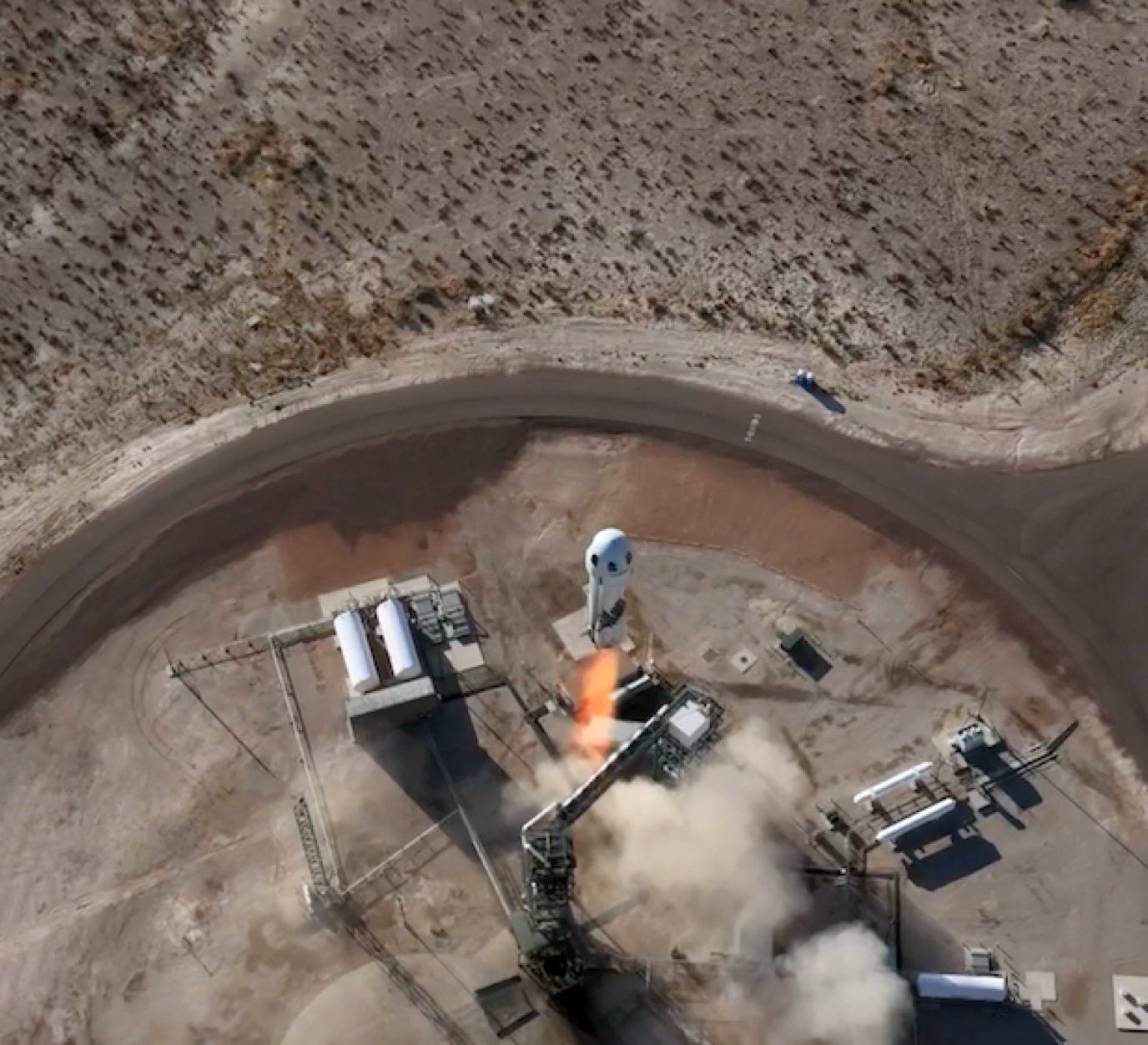
Jeff Bezos committed to his long-term plans in space Earth (Image: Blue Origin)
As we move closer to the end of 2022 we can easily say that it has been, already, an eventful year in the space sector. Whilst leading space nations still seem to be the pioneers of space, the standout of the year most certainly has to be the private sector, as a whole. Jeff Bezos, whilst recently receiving an award at the Vatican, said that "we go to space not to abandon our home but to protect it”. Is it this drive that is spurring the private sector to build the framework for the future?
This isn’t to say that the public sector is lagging behind. Far from it. We are still to see Artemis-1 liftoff (hopefully) in November, and China is set to launch the final module of its new space station at the end of the month. NASA concluded very successful results from their DART asteroid deflection test, and their OSIRIS-REx spacecraft is reportedly on its way back to Earth to delivery an asteroid sample, scheduled for September 2023. They have also conducted successful tests of their robotic balloon, to be used to explore the atmosphere of Venus.
The UK also appear to be on course with their plans to increase presence in space (aiming to dominate 10% of the market), and have this week announced a £15 million fund to boost their satellite communications industry, as well as UK launch startup Orbex sourcing new funding helping them focus on their debut UK launch next year.
An article from the World Economic Form this week, referring to The Space Foundation 2022 report, highlighted this pace of national investment, with an overall increase of 19%, with India increasing their space spending by 36%. As well as helping to kickstart new industries, this type of public support will also be vital in helping the industry with their long-term plans whilst facing tough economic times.
Nevertheless, the private sector have let heir voices be heard over the past weeks, taking the lead in innovation, efficiency and building the foundations for a revolution in the space sector.
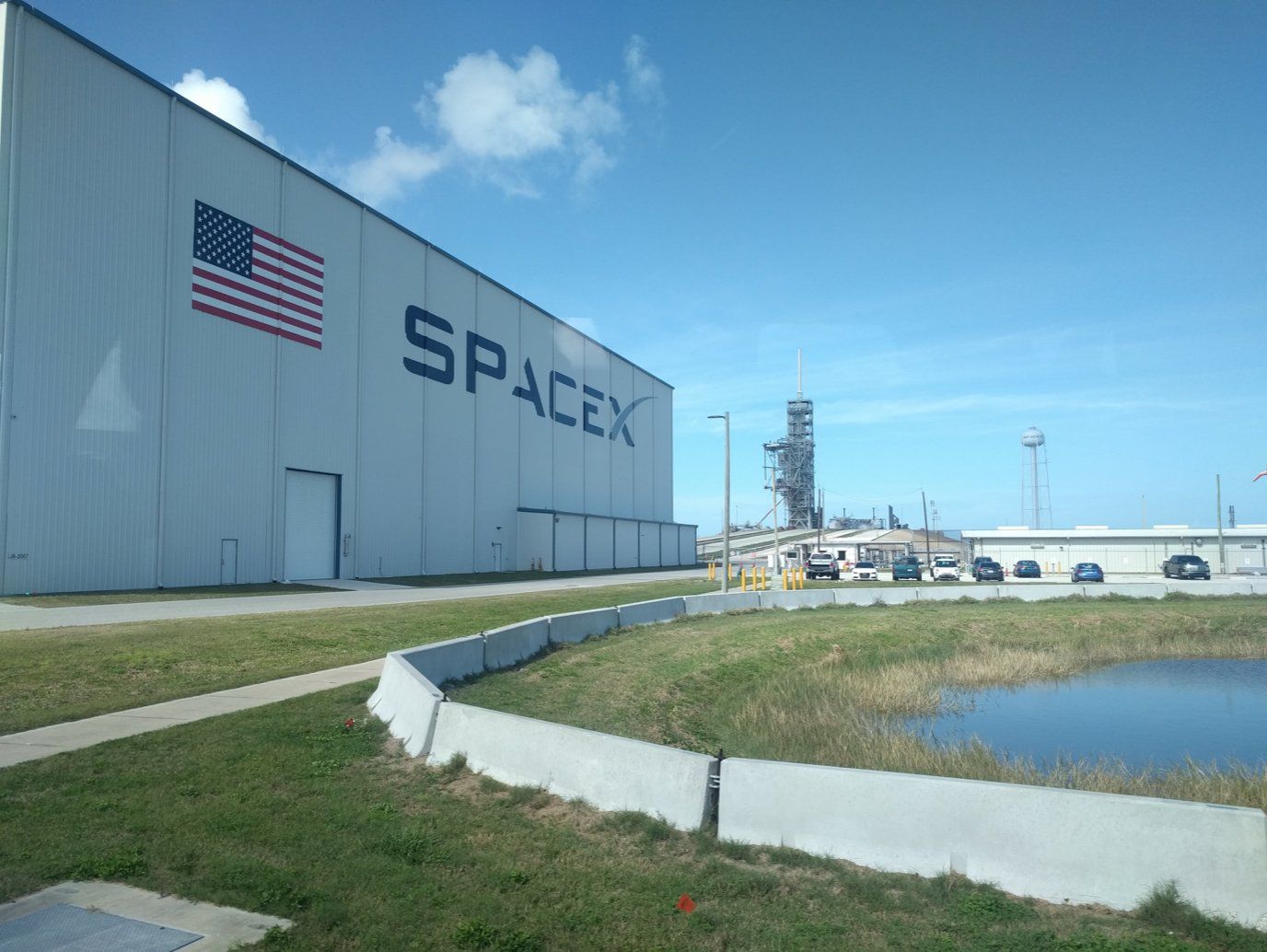
SpaceX improving efficiency for for small sat launches (Image: SpaceX)
Efficient Innovation Building ‘Road To Space’
Efficiency appears to be the key for innovation. Whether that’s in reusable design bringing down costs and improving responsive launch capabilities, improving sustainable engine design or reducing development timeframes. Efficiency will also come about as a result of an increasingly competitive marketplace, which in turn, will reduce costs and increase accessibility to space.
The forerunner for efficiency still appears to be SpaceX, and their workhorse, the Falcon-9. It seems that the rocket will be the launch option chosen for the European astrophysics spacecraft, Euclid. The mission, being carried out to observe dark matter and energy, was previously set to launch with Soyuz, and will likely be picked up by SpaceX. Furthermore, they have recently improved the payload efficiency of their ride-share capabilities for small satellites, further reducing costs for customers. The so called “Rideshare Plate” is designed to offer customers a “modular and flexible platform capable of supporting all kinds of payload adapters and dispensers”, according to teslarati.com.
Virgin Orbit will also be looking to make their name known, with Richard Branson stating that their first UK launch (named the “start me up” launch) will be within the next 6 weeks. Furthermore, they have also signed a letter of intent with Luxembourg in pursuit of proving responsive launch capabilities, extending this service also to NATO allies. Virgin will be aiming to push their flexible and rapid launch service, having the unique advantage of launching mid-air from their 747.
Efficiency in design and development will be vital, in building road to space. SpaceX and Blue Origin are certainly the most famous when it comes to the use of reusable rocket tech, but Relativity Space are also focussing on developing their fully reusable rocket. After making an agreement with NASA they will now open one of the largest rocket test facilities in the US, and will continue work towards developing the world’s first 3D printed rockets, Terran 1 and Terran R, the latter their fully reusable rocket, with a payload up to 20,000kg. Similarly, Launcher Space have recently successfully tested their 3D printed E-2 engines, supposed to be the most efficient kerosine powered engines ever made in the US. Efficiency appears to be the key to accessibility in space.

Urgency to build regulations for stations replacing ISS (Image: NASA)
Leadership Coming From The Private Sector
Leadership in space comes from those who innovate and provide the solutions needed to further our future. Historically it has been leading space nations, yet it appears to be that it is the private sector who are providing more of the innovation that is needed in order to build this future, and moreover, provide the competition that is required to increase the pace of technological development and design. But how far can the private sector be involved with governmental and defence aspiration without becoming involved in geopolitical conflict?
Elon Musk has confirmed that he will continue to fund the use of his Starlink satellite constellation in Ukraine, after previously considering asking the US for funding. As previously discussed, the use of Starlink sees a private sector company being directly being involved in a conflict, and taking decisive leadership within a geopolitical situation. Is this a sign for things to come with leading space companies?
Similarly, Blue Origin and Jeff Bezos were recently given an unclassified briefing from U.S. Space Systems Command, covering topics such as their concern regarding threats posed from China and Russia. Again, perhaps an indication of how the leaders of innovation may become increasingly influential in building the framework for a new space economy.
Whilst it may be a concern that the commercial sector come become embroiled in conflict, it may also be a chance for a new body to influence and encourage the construction of a neutral and peaceful space framework, and after all, there is still a lot of work that needs to be done, in building laws and universally recognised regulations which govern activities in outer space. During panel discussions at the Beyond Earth Symposium on October 13th, companies looking to contract new commercial space stations voiced concerns about the “…“alphabet soup” of agencies, none of which today have the authority to provide oversight of their operations as required under the Outer Space Treaty”, according
spacenews.com.
It’s areas such as these where the private sector need clarity, in order for us all the succeed in space.
Furthermore, as we continue to witness the deterioration of geopolitical relations, and the threat of conflict in space grows, it appears that it may be the voice of the increasingly influential private sector who could make their voices heard, pick up where politics has failed, and lay out the foundations where a neutral and peaceful future in space can evolve.
Share this article
External Links
This Week
*News articles posted here are not property of ANASDA GmbH and belong to their respected owners. Postings here are external links only.






















